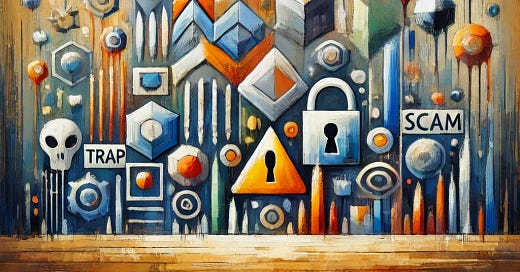Warum so viele Betrüger behaupten, dass sie nigerianische Prinzen sind
Ironically, that most egregious of cons, the 419 scam, or Nigerian scam, illustrates how hard scamming really is.
A few years back, we were bombarded with e-mails alerting us to a wonderful opportunity: someone, often from Nigeria, had a huge amount of money and offered us a cut of the pie if we would only wire them the small sum they needed to access a much bigger sum.
This small investment would be repaid a hundredfold.
Seeing these ludicrous messages, it is quite natural to think people incredibly gullible: How could anyone fall for such tall tales, sometimes losing thousands of dollars?
In a perceptive analysis, computer scientist Cormac Herley turned this logic on its head: the very ludicrousness of the messages shows that most people are, in fact, not gullible.
Herley started by wondering why most of these messages mentioned Nigeria.
This scam had quickly become associated with the country, so much so that scam was one of the top autocompletes after typing Nigeria.
Why, then, keep using the same country?
Besides the country, there was clearly little attempt at credibility in the messages: the sender was a prince ready to part with a good chunk of a huge sum, not exactly a common occurrence.
Why make the messages so blatantly suspect?
Herley noted that while sending millions of messages was practically free, responding to them cost the scammers time and energy.
After all, no one would be sending the money right away. Instead, marks had to be slowly reeled in.
Expending such effort was only worthwhile if enough marks ended up falling for the scam hook, line, and sinker.
Anyone who would do a Google search, ask for advice, or read their bank's warning notices wouldn't be worth expending any effort on.
The solution scammers adopted to weed out these people was to make the messages voluntarily preposterous.
In this way, the scammers ensured that any effort spent engaging with individuals would only be spent on the most promising marks, those who were the least well informed.
Ironically, if these scam attempts are so ludicrous, it is not because people are gullible but because, by and large, they aren't.
If they were, scammers could cast a much broader net with more plausible messages.
Aus dem Buch “Not Born Yesterday: The Science of Who We Trust and What We Believe” von Hugo Mercier.




